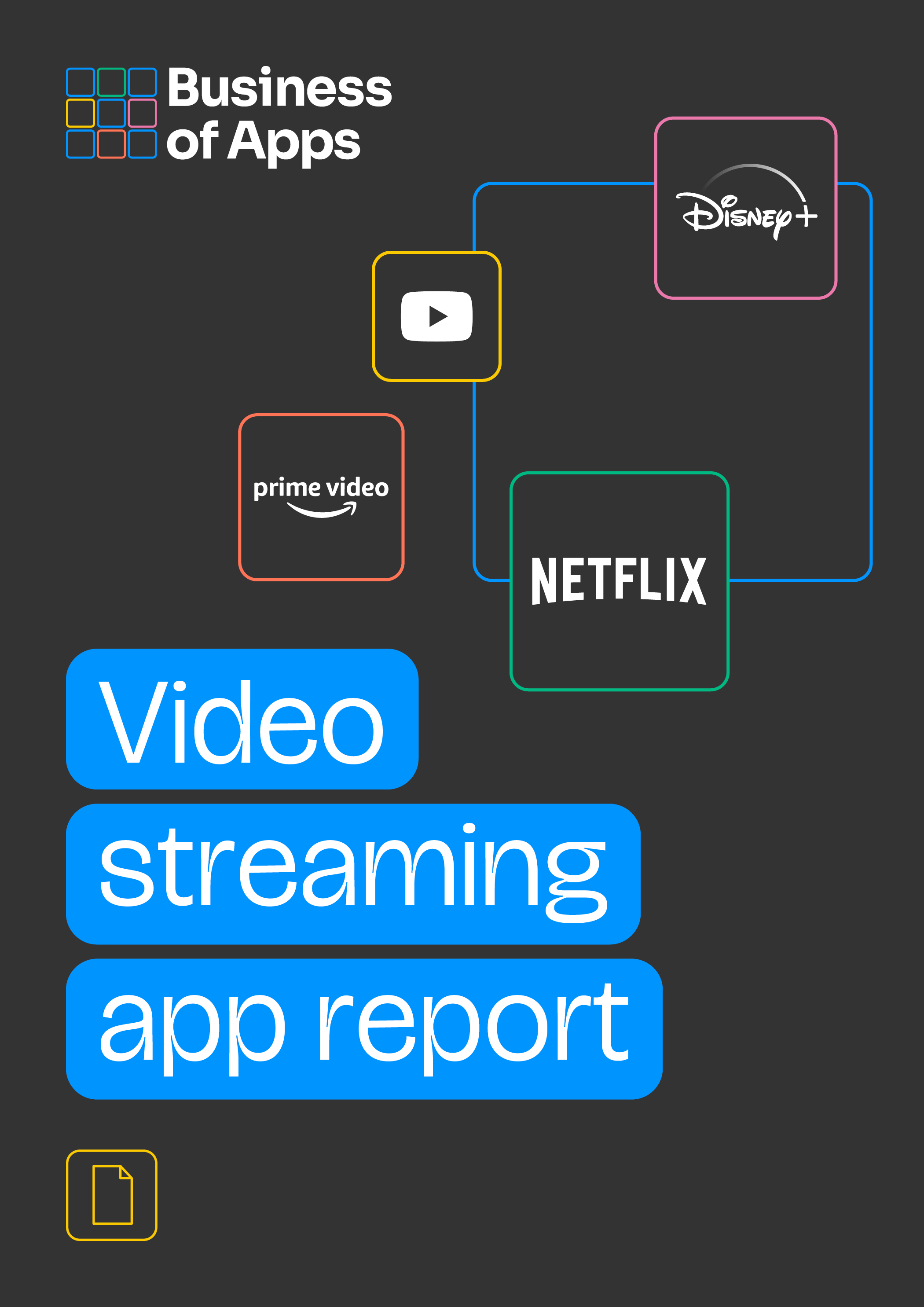Video streaming service Hulu started its life with major backing from new and old media, receiving investment and content from NBC Universal, MSN, MySpace and Yahoo in 2007 before launching early in 2008.
Hulu entanglement with the media conglomerates of America placed it in stark contrast to Netflix, which while subservient to the licensing demands of the industry, is considered an independent operator. For most of its existence, the majority of Hulu was owned by one or several media companies, ending with Disney acquiring a majority share in 2019.
This perception of Hulu as a place film and TV studios dump content is a misconception, created during the era when several media companies had stakes in the company but did not want to launch any new titles on it. Before that period it was competitive with Netflix, attempting to break new ground with innovative online partnerships.
Sadly for Hulu, it was always in the shadow of Netflix, as its rival added millions of customers every year in North America, Europe and South America. Netflix and Amazon Prime Video both launched original TV series in 2015, another move that pushed the video streaming services away from old media’s control.
It would take Hulu two years to copy Netflix and Prime Video’s model, launching The Handmaid’s Tale in 2017. It became an instant hit for the streaming service, and provided Hulu with a way to rebrand as a content producer in its own right, instead of an aggregator of old television shows and movies.
As Hulu started to gain traction through its original series, Disney began to acquire more of it from other media conglomerates. First came the acquisition of 30 percent of Hulu from 21st Century Fox, then a month later AT&T sold 10 percent of the company to Disney. A month after that, Comcast announced it would sell its 33 percent share to Disney by 2024, ceding full control.
Disney, in comparison to Comcast and 21st Century Fox, has implemented one of the smartest digital strategies in the past decade. In its first year, Disney+ has almost reached 100 million subscribers worldwide, and ESPN+ has over 10 million subscribers.
With the move to control Hulu completely, it looks likely that the app will be folded into Disney+ in the near future. Hulu TV shows and movies will be available on Disney+ soon, the first nail in the coffin of Hulu as its own service.
Hulu also offers a live TV service similar to YouTube TV and other internet-based live TV services. It charges much more for this, and it comes with 75 channels, ESPN+ and Disney+.
We have collected data and statistics on Hulu. Read on below to find out more. Want to learn more about the video streaming app market? Check out our in-depth report.
Hulu Key Statistics
- Hulu generated $12 billion revenue in 2024, most came from its streaming platform
- Over 43 million people subscribe to Hulu, 4.4 million of those subscribe to Hulu’s Live TV services
- Disney valued the app at $15.8 billion in 2019, when it agreed to acquire the rest of it from Comcast
Want to learn more about the video streaming app industry? In our Video Streaming App report, we cover financials, forecasts, usage, downloads, demographics and benchmarking data.Video Streaming App Report
Hulu Overview
| Title 1 | Title 2 |
|---|---|
| Launch date | 29 October 2007 |
| HQ | Los Angeles, California |
| People | Jason Kilar (co-founder), Joe Earley (President), Robert Iger (CEO, Disney) |
| Business type | Subsidiary |
| Owner | The Walt Disney Company |
| Industry | Video streaming |
Hulu Revenue
Hulu made $12 billion revenue in 2024, an 7.4% increase on the previous year.
Hulu revenue 2019 to 2025 ($mm)
Hulu revenue 2010 to 2024 ($bn)
| Year | Revenue ($bn) |
|---|---|
| 2010 | 0.2 |
| 2011 | 0.4 |
| 2012 | 0.6 |
| 2013 | 1.1 |
| 2014 | 1.6 |
| 2015 | 2 |
| 2016 | 2.4 |
| 2017 | 3.1 |
| 2018 | 3.5 |
| 2019 | 4.5 |
| 2020 | 7.2 |
| 2021 | 9.6 |
| 2022 | 10.7 |
| 2023 | 11.2 |
| 2024 | 12 |
Sources: Video Streaming App Report, Company data
Hulu Streaming Revenue
Hulu makes the majority of its revenue from its video-on-demand service, which users can access with or without ads for different price points.
Hulu streaming revenue 2019 to 2024 ($bn)
| Year | Revenue ($bn) |
|---|---|
| 2019 | 3.7 |
| 2020 | 4.4 |
| 2021 | 5.8 |
| 2022 | 6.3 |
| 2023 | 6.3 |
| 2024 | 6.8 |
Sources: Video Streaming App Report, Company data
Hulu Live TV Revenue
Hulu also offers a live TV service, which has 75 cable channels alongside access to Disney+, ESPN+ and Hulu’s video-on-demand service.
Hulu Live TV revenue 2019 to 2024 ($bn)
| Year | Revenue ($bn) |
|---|---|
| 2019 | 1.4 |
| 2020 | 2.8 |
| 2021 | 3.7 |
| 2022 | 4.4 |
| 2023 | 4.8 |
| 2024 | 5.2 |
Source: Company data
Hulu Users
Hulu has increased its subscriber count each year since launch, and had 52 million subscribers at the end of 2024.
Hulu subscribers 2019 to 2025 (mm)
Hulu subscribers 2011 to 2024 (mm)
| Year | Subscribers (mm) |
|---|---|
| 2011 | 1 |
| 2012 | 2 |
| 2013 | 4 |
| 2014 | 6 |
| 2015 | 10 |
| 2016 | 12 |
| 2017 | 17 |
| 2018 | 22 |
| 2019 | 25 |
| 2020 | 32 |
| 2021 | 41 |
| 2022 | 45 |
| 2023 | 48.2 |
| 2024 | 50.2 |
Sources: Company data, CNBC, The Verge
Hulu Streaming Subscribers
Hulu’s video-on-demand platform increased its subscribers by 4.8% year-on-year, the lowest percentage growth over the past five years.
Hulu streaming subscribers 2018 to 2024 (mm)
| Year | Subscribers (mm) |
|---|---|
| 2018 | 20.1 |
| 2019 | 23.2 |
| 2020 | 28.8 |
| 2021 | 37.8 |
| 2022 | 41.4 |
| 2023 | 43.7 |
| 2024 | 45.8 |
Source: Company data
Hulu Live TV Subscribers
Hulu’s Live TV package surpassed four million subscribers in 2022, but growth has slowed in the past two years.
Hulu Live TV subscribers 2018 to 2024 (mm)
| Year | Subscribers (mm) |
|---|---|
| 2018 | 1.1 |
| 2019 | 2 |
| 2020 | 3.3 |
| 2021 | 3.8 |
| 2022 | 4.1 |
| 2023 | 4.4 |
| 2024 | 4.6 |
Source: Company data
Hulu vs Competitors: US Users
Hulu is on the lower side of total users, as to be expected from a paid-to-use app. YouTube and TikTok are far ahead in total users.
Video streaming users by app in United States 2023 (mm)
Want to learn more? Check out our Video Streaming App Report
Hulu FAQ
What is the average monthly revenue of a Hulu subscriber?
In 2020, the average Hulu subscriber generated $12.24, while a Live TV subscriber generated $67.24
How much of Hulu’s revenue is from subscriptions?
In 2019, subscription revenue accounted for 54 percent of Hulu’s total revenue (Firstpost)
What is the most watched programme on Hulu?
Little Fires Everywhere is the most watched drama on Hulu ever (Jason Lynch)
How many subscribers does Disney’s video streaming platforms have combined?
Combined, Disney+, Hulu and ESPN+ have 137 million direct to consumer subscribers (Variety)
More Video App Data
- Max Revenue and Usage Statistics (2025)
- Amazon Prime Video Revenue and Usage Statistics (2025)
- Video Streaming App Revenue and Usage Statistics (2025)
- Disney Plus Revenue and Usage Statistics (2025)
- Netflix Revenue and Usage Statistics (2025)
- Tubi Revenue and Usage Statistics (2025)
- Twitch Revenue and Usage Statistics (2025)
- TikTok Revenue and Usage Statistics (2025)
- YouTube Revenue and Usage Statistics (2025)



